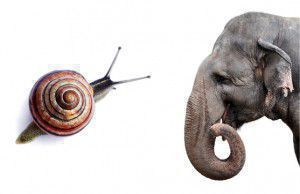What’s so good about Eurovision?
This Saturday is the final of the Eurovision Song Contest 2014 in Denmark, with 125 million people expected to watch across Europe and beyond. The contest, now in its 59th year, has become known for its wacky performances and tends to divide opinion; while some people love it (although maybe not as much as this man), others claim to find it tacky. But I think most people can agree that whether you take it seriously or not, Eurovision is good fun. (Even if sometimes you need a drink or two to help you through it.) Here are our ten favourite things about Eurovision:
1. Russian Grannies
I had to put this first because it was one of my favourite ever Eurovision moments. The song on its own is fairly forgettable, but what made it amazing was the elderly ladies who managed to incorporate baking into their performance at the 2012 contest. I’m still not sure what it had to do with a Party for Everybody, but it was brilliant, and I’m still disappointed that it didn’t win.
2. Riverdance
The Irish dance act were first discovered when they performed during the interval of the Eurovision Song Contest in 1994. Known for its amazing synchronicity, energy and rhythm, Riverdance went on to become a worldwide phenomenon. So if you’re not a fan, now you know who to blame.
3. Romanian rivalries
In the UK, it’s not seen as very ‘cool’ to enjoy Eurovision, but some other countries take it incredibly seriously. In Romania, for example, it’s a really big deal and apparently it’s traditional for the acts to try and win a place by discrediting their opponents.
4. The voting
How could I not mention the political voting? Half the fun of Eurovision is predicting who’s going to give points to who. Greece and Cyprus usually vote for each other, as do the Scandinavian countries and the Balkans. If that sort of thing interests you, this is a useful summary. Unfortunately, the political voting tends to leave the UK in a precarious position; we often get votes from Ireland, and sometimes Malta, but not very often from anyone else…
5. The UK
While we’re on the subject, let’s take a look at the UK’s Eurovision record. It’s hard to believe looking at recent history, but apparently it’s one of the most successful countries, winning five times since our first appearance in 1957. The last win was in 1997, with Katrina and the Waves, and since then we’ve not been doing so well, finishing last three times. The first of these was in 2003, when we scored an embarrassing ‘nul points’. Apparently this year’s entry, Children of the Universe, by singer-songwriter Molly, is expected to do well. I’ll believe it when I see it.
6. ABBA
It’s not often that a Eurovision act goes on to have a successful long term career, but one exception is Swedish group ABBA. Not only did they win the contest for Sweden in 1974, they went on to sell over 380 million albums worldwide. Their music also featured in the hit film Muriel’s Wedding and the award-winning musical, Mamma Mia! (And the movie version, which introduced the world to the singing ‘talents’ of Pierce Brosnan.)
7. Alcohol is Free
Regardless of your views on drinking, it’s hard not to tap your foot along to Alcohol is Free, by Koza Mostra and Agathonas Iakovidis, a.k.a. the Greek answer to Madness. They finished sixth in 2013.
8. Finland
We love Finland; they always come up with something memorable. Last year was the catchy Marry Me, which ended with that kiss, but nothing beats 2006 entry Hard Rock Hallelujah, by Lordi. Eurovision isn’t known for its heavy metal, preferring to stick to happy songs about how we should all love each other. But the alternative approach seemed to do the trick; the band won that year’s contest.
Warning: this video contains flashing lights and monster masks!
9. Language rules
Eurovision used to have a very strict rule about countries only singing in their native language, which has been lifted and restored a few times over the years. These days, many of the competing countries choose to perform in English, but some remain loyal to their own language; France and Spain are two examples. When I was growing up, there were more songs in other languages than there are today, and we used to enjoy turning on the subtitles and watching them struggle to translate the lyrics. Songs in English have won 28 times, followed by French, with 14 wins.
10. Fairytale
This was a popular choice in the EuroTalk office. Every now and again, Eurovision does actually produce a good song, and Fairytale was the one that we all thought of. The Norwegian entry for 2009 featured violinist Alexander Rybak, and won with a record-breaking 387 points out of a possible 492. For some reason, Alexander and his dancers were also a bit of a hit with the ladies…
Have we left out your favourite thing about Eurovision? Let us know in the comments!
Liz
Where it’s at – how to say @ in different languages
The other day a colleague was telling someone his email address in French. He was halfway through and ran across a problem. He didn’t know the word for “the little ‘a’ in the circle”. In English we just say ‘at’, but that translates as ‘à’ in French and that sounds remarkably like the letter ‘a’. See the problem?
What he should have said was ‘arobase’, but different cultures call it completely different things – from official names to animal-based nicknames. Below we’ve found some of the most creative words for “the little ‘a’ in the circle”:
Animals (With Curly Bits)
The Germans, Romanians and South Africans (among others) all describe it as a ‘monkey tail’.
Thai and Hungarian people call it a ‘worm’ and the Italians refer to it as a ‘snail’.
The Swedish and Danish describe the shape as an ‘elephant’s trunk’ and the Greeks think it looks more like a ‘duckling’.
Curly Food
In Catalan, the “little ‘a’ in the circle” is named after a swirly pastry called an ‘ensaïmada’.
In Hebrew it’s named after a strudel.
In Slovak, it’s named after a rolled pickled herring!
Other Uses
The “little a” isn’t only used in email addresses. In Spanish, the symbol is sometimes used to represent masculine and feminine gender in the same word, for example ‘amig@s’ means male and female friends, although this is frowned upon by the Real Academia Española, so we don’t recommend it!
And in Portugal and Brazil, the symbol is used in text messages to represent ‘french kiss’ – so be careful how you use it if you’re travelling in those countries…
What do you call the @ symbol?


